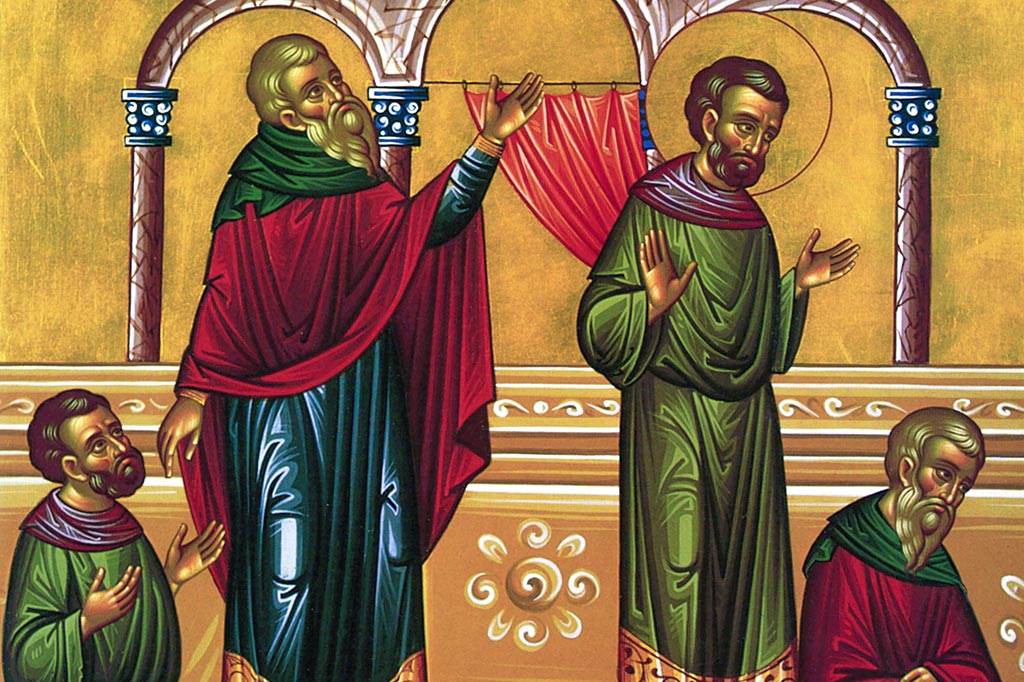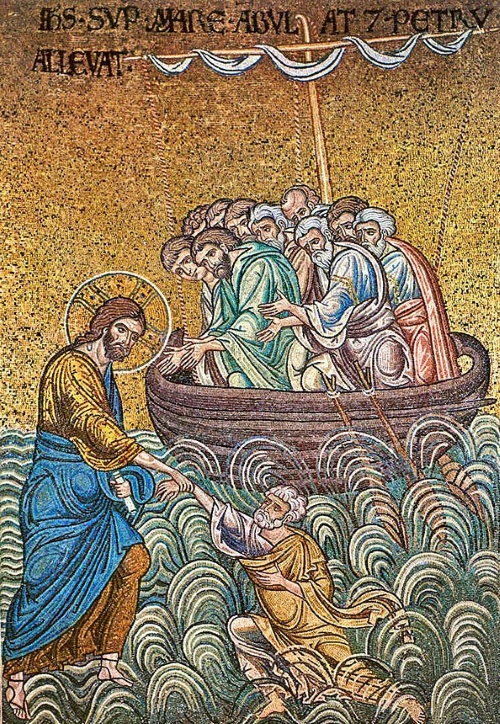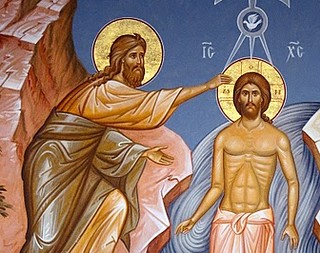And when Jesus returned to Capernaum after some days, it was reported that He was at home. And many were gathered together, so that there was no longer room for them, not even about the door; and He was preaching the word to them. And they came, bringing to Him a paralytic carried by four men. And when they could not get near him because of the crowd, they removed the roof above Him; and when they had made an opening, they let down the pallet on which the paralytic lay. And when Jesus saw their faith, He said to the paralytic, “My son, your sins are forgiven.” Now some of the scribes were sitting there, questioning in their hearts, “Why does this man speak thus? It is blasphemy! Who can forgive sins but God alone?” And immediately Jesus, perceiving in His spirit that they thus questioned within themselves, said to them, “Why do you question thus in your hearts? Which is easier, to say to the paralytic, ‘Your sins are forgiven,’ or to say, ‘Rise, take up your pallet and walk’? But that you may know that the Son of man has authority on earth to forgive sins”—He said to the paralytic— “I say to you, rise, take up your pallet and go home.” And he rose, and immediately took up the pallet and went out before them all; so that they were all amazed and glorified God, saying, “We never saw anything like this!” Mark 2:1-12 (Gospel of the Second Sunday of Lent)
There are two important lessons that come from today’s Gospel reading. The first involves friendship. A man who was paralyzed wanted to get to Christ so that he could be healed. He had no way of getting to Christ on his own. So, his four friends carried him to Christ. And not only did they carry him. When they got to the house where Jesus was, there was no room to get into the house, they couldn’t even get to the door. So they went and cut a hole in the roof of the house and let the man down through the roof. It’s hard to imagine what that looked like. Imagine if you wanted to get someone on the roof of your house. There are four people to do it, and one man lying on a mattress who needs to get on the roof. You’d have to lift his weight and the weight of the mattress, hoist all of this at least ten feet in the air, and do it all without your paralyzed friend falling and getting even more hurt. There might have been some ridicule in the crowd as well. The passage doesn’t say that a lot of people helped these men. Actually it doesn’t say anything about them getting help. The crowd could have helped by just opening the door and making room. The lesson here is that in getting others to Christ, it might not agree with the “crowd” of the day. Thankfully, four friends were undeterred in their efforts to get their friend to Christ.
Which brings us to the second and more powerful lesson of the story. After all of this effort, cutting a hole in the roof, and carefully lowering their friend to Christ (imagine that ingenuity and how hard it must have been to lower a mattress with ropes and have it not fold up or have the man fall off), Christ said to the man “My son, your sins are forgiven.” (Mark 2:5) Can you imagine the reaction of the friends? Like, “Hey, Jesus, why do you think we all just went through all that trouble, the lifting on the roof, the cutting of the hole, the lowering of our friend, just to see you? We came so he could walk. We didn’t come for forgiveness!” Or what the paralyzed man thought “Hey, Jesus, my problem isn’t my sins, my problem is that I’m paralyzed.” Imagine how upset these people must have been that Jesus didn’t do what they wanted. It was obvious to THEM what needed to be done.
However, Jesus doesn’t always do exactly what we want, but what HE thinks we need. The man’s biggest problem, which is ours as well, is that we are “paralyzed” by sin. The ultimate healing we all need is healing of our spirits, healing of hearts shattered by sins. There are other wounds we all carry as well—for some it might be paralysis of body, or other another sickness. For some it might be something in our minds that doesn’t work right. It might be emotional scarring or a material need—like a need for a new job. It might be something long term, like a need for restored health, or it might be something more immediate like success on a test in school. But the greatest need we all have is for spiritual healing that only the Lord can give. And so Jesus gave the man spiritual healing. And then He healed his paralysis.
Christ is not a vending machine where we put in our requests and He answers them. The goal of prayer isn’t to do that. The goal of prayer is to simply be with Christ. He knows our needs, even before we ask Him. The goal of prayer is to share an intimacy with Christ. It is certainly appropriate to lay out our needs and our struggles before God, the same way we tell our friends about our struggles. It is important, however, to remember that things are not always answered in the way we want them answered.
If my son asks me every day, “Can I have French fries?” I’m not going to say yes to that every time. Sometimes the answer is going to be “You are going to get broccoli.” And then my son might say “Don’t you love me Daddy, why can’t I have French fries every day?” And my answer to that would be “Of course I love you, and I know you love French fries, but if I let you eat them every day, you won’t be healthy and I wouldn’t be a responsible father if I put your health in jeopardy. I want you to have a happy, healthy and long life, so the answer to your request today is broccoli rather than French fries, because what YOU really want is a long and healthy life, not just the good taste of food that isn’t good for you.” God is our Father, and sometimes the Father knows better than the children. Sometimes God answers prayer in the way that He feels is most beneficial for us, even if it’s not what we think is best. And sometimes, as in the case of the Paralytic, He answers both the request we are making as well as the one we are not making.
When I don’t let my son have everything he asks for, it doesn’t mean I don’t love him. In fact, I love him so much that I won’t give him whatever he wants, but what I think is best. And sometimes those are the same thing. God loves us so much that He will answer our prayers and give us what He thinks is best. And sometimes those are the same thing as well.
With one accord, we sing your praises, Father Gregory who speaks from God, sonorous trumpet of theology, and divine and sacred organ of holy wisdom. But as intellect that stands before the Intellect, unto Him direct our intellect, so unto you we may cry aloud: Rejoice, O herald of grace. (Kontakion, Sunday of St. Gregory Palamas, Trans. by Fr. Seraphim Dedes)
Ask God every day for His will to be done in your life. And then trust Him to lead your steps, to what is best for you.



